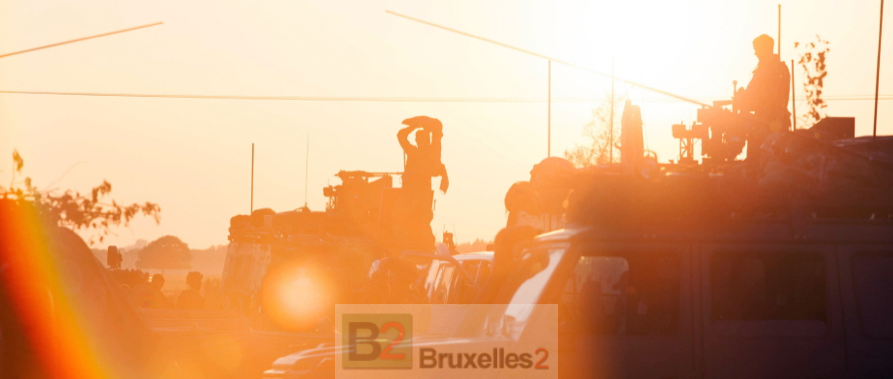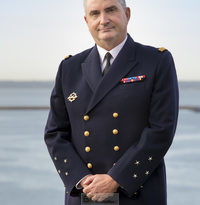These very expensive battlegroups, really unusable?

(BRUSSELS2) The Union's rapid reaction force - the famous Battlegroups or Tactical Groups - are still in the garage. And they are likely to stay there - unless there is a very clearly stated political will. Because many opportunities have been lost in the past. I counted 4 of them. And the current schedule of the battlegroups, if it is not very full in appearance, has in fact many holes when we take into account the economic, political and operational contingencies.
One last miss...
The last missed opportunity was in the Rep. Central African Republic (CAR). Everything was cut out for an action by one of the European Union's battle groups: the pre-genocidal crisis situation, a possibility of intervention well framed geographically (Bangui or West CAR), a commitment limited in time, the commitment of the African Union on the one hand, of the UN on the other, a favorable international consensus. And everyone (High Representative as well as Member States) contributed to this opportunity being lost... (read: Send these "damn" battlegroups in the Central African Republic, you do not think about it! et Battlegroup for the Central African Republic? How Cathy said stop!)
Three other opportunities lost in six years
This is not the first time that such an opportunity has been missed. In the past, on three occasions, a need was felt for a rapid intervention, the country or the UN was requesting it, and the idea of sending a battlegroup was put on the table, or at least considered a time, before finally being abandoned.
1° In 2008, in the Congo, says Alain Le Roy, former head of blue helmets at the UN and current secretary general of the European diplomatic service. " When I was in the peacekeeping department of the UN, I had asked for European aid for the Congo, a battlegroup had been seriously considered. But we didn't get it." (also read: Will the Franco-German Battle Group go to the Congo? et The EU is studying four options for the Congo).
2° On Libya, also in 2011, we had also seriously considered the possibility of involving a battlegroup to ensure the evacuation of European and foreign nationals, the "Nordic battlegroup" was ready. " But the question of costs had strongly hampered the deployment " (read : Eufor Libya: the Nordic Battlegroup “ready to go”.
3° In Mali, also in 2013, “ he had a moment to send a battlegroup ». But there, apparently, it was the French who weren't keen on having multinationals. And the on-call nations were not "boiling hot" to use an appropriate expression... (read: mali. A certain failure of the concept of battlegroups).
Squad review: A schedule with very big holes
If you look at one of the broadcast schedules, make no mistake, half of the filled slots will not be used. Nobody will really dare to say it within the European Union. I tested it several times. They will make big eyes at you with an "Oh" like a frightened virgin, before saying to you, with a sigh: well, you are "exaggerating a little .." or "I will not quite say that", most often supported by a long silence accompanied by a crooked smile which says more than all the speeches.
Those who are there for the figuration
In fact, if you see a battlegroup, labeled "British" (on call in the first half of 1), you are almost sure that it will not leave, on ideological principle: a Briton rarely takes part in a European operation, unless it is maritime and, preferably, commanded by a British admiral (London will then speak of a multinational operation under British command!). Ditto for a battlegroup "Helbroc" (on call in the 2nd half of 2016), ordered by Greece with Romania or Bulgaria (*), but for other reasons (budgetary).
Those who will leave with difficulty
Battlegroups under Italian command (respectively 1st and 2nd half of 2017) or Spanish, are not better off in terms of budget, and should not be able to "shift" for economic reasons, except for reasons of national interest. This blockage could even reach France. In the current configuration of overmobilization of troops (interior, Iraq, Mali...), there is no need to ask the General Staff to deploy a GTIA of 1500 men in external operations. " I don't know where we would take them an officer explained to me. Except, here again, for a reason or a theater of national interest, deemed to be a top priority by Paris.
Those who would have gone well... but
In fact, there remain three theoretically operational battlegroups: the nordic battlegroup (on call this first half of 1). But we feel that in Stockholm especially, the heart is not really there anymore. " The atmosphere is not the same as it was a few years ago a Nordic expert told me. Several reasons: the change in political atmosphere, the Swedes were very disappointed with the lack of response given by the Europeans to their desire for commitment during their last stay (in 2011). Finally, it is expensive. “We invested a lot of money in these battlegroups, it's very expensive. And this is causing controversy. We ask ourselves the question in Sweden to know if it is really necessary and about their real usefulness recently summed up a Green MEP, Bodil Ceballos.
Those who might possibly leave, if...
The surprise could, in fact, come from the German-Austro-Dutch battlegroup (permanently in the second half of 2), theoretically operational, with a German desire to shine in terms of foreign policy (national and European), but it is difficult to see in what geopolitical configuration it could do so. There remains the Visegrad battlegroup (led by the Poles). But, there too, it is difficult to see them committing themselves to "pure" African territory without solid support from another country. Although a surprise is always possible. During the last operations in Chad (EUFOR Tchad RCA) in 2016 and recently in the Central African Republic (EUFOR RCA), the forces from the Eastern countries ensured the weld necessary for the launch of the mission!
In short, I had written in the past that the EU's rapid reaction force was slow reacting, today I will say rather that it runs on LPG, the gas being frozen, the engine must be found for the reliquefy before it leaves...
(Nicolas Gros-Verheyde)
Read also:
- Battlegroup, a problem, chronic?
- Small holes… in the Battlegroup schedule, always!
- Battlegroups, a beautiful tool left fallow
(*) This theoretically includes Ukrainians. But these "have, I think, other concerns than the CSDP today “confided, recently, with a very subtle irony, a high-ranking European.



